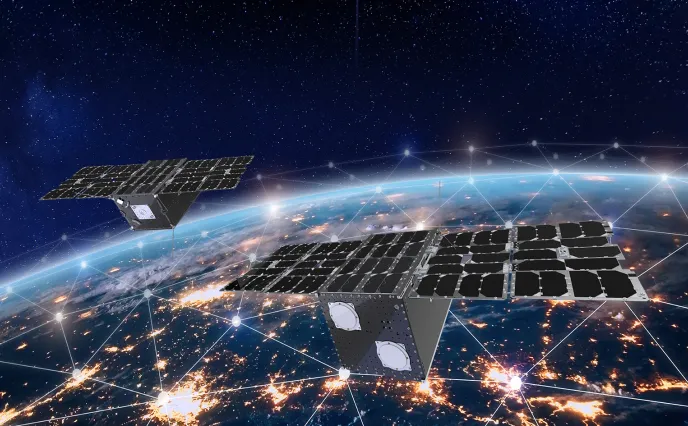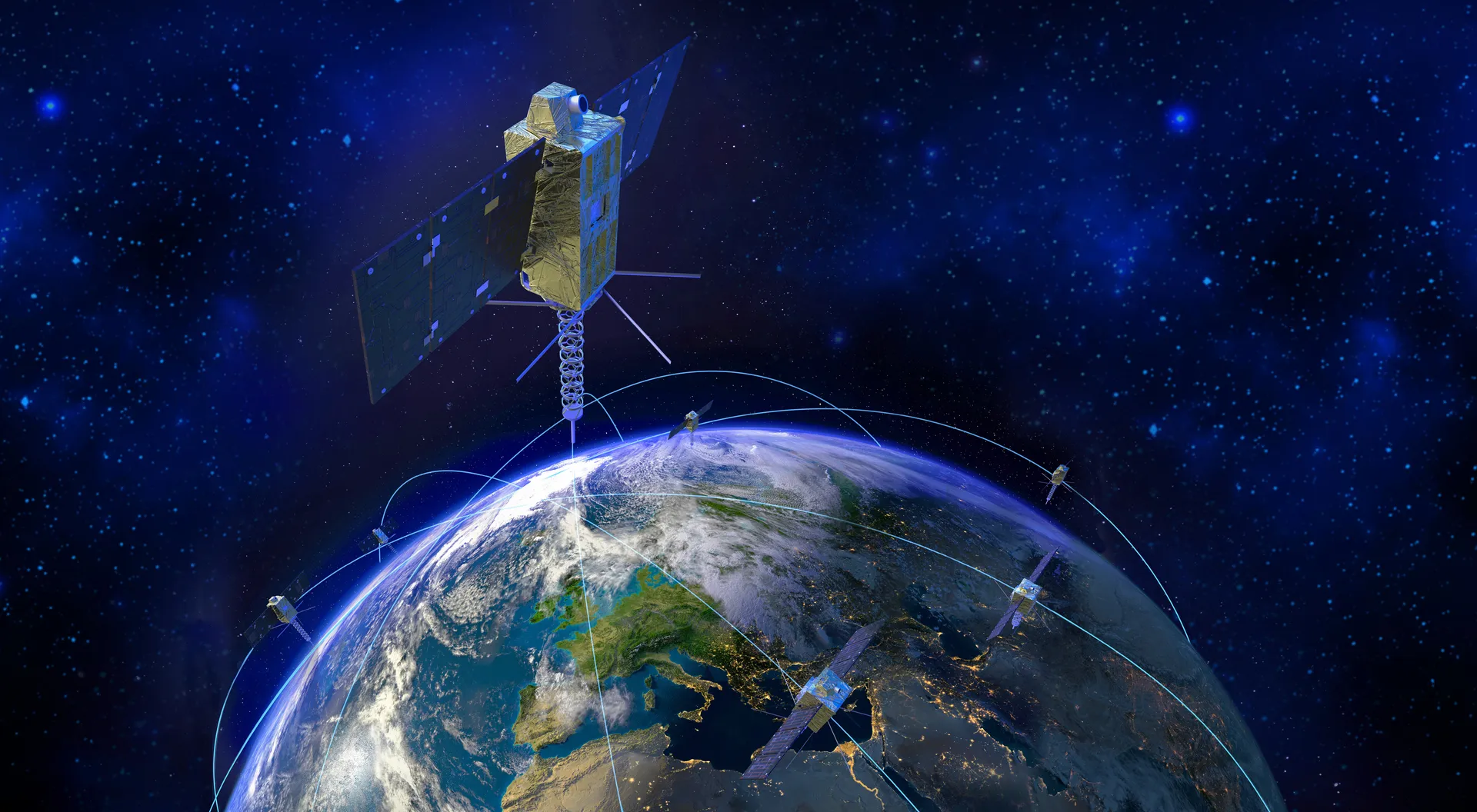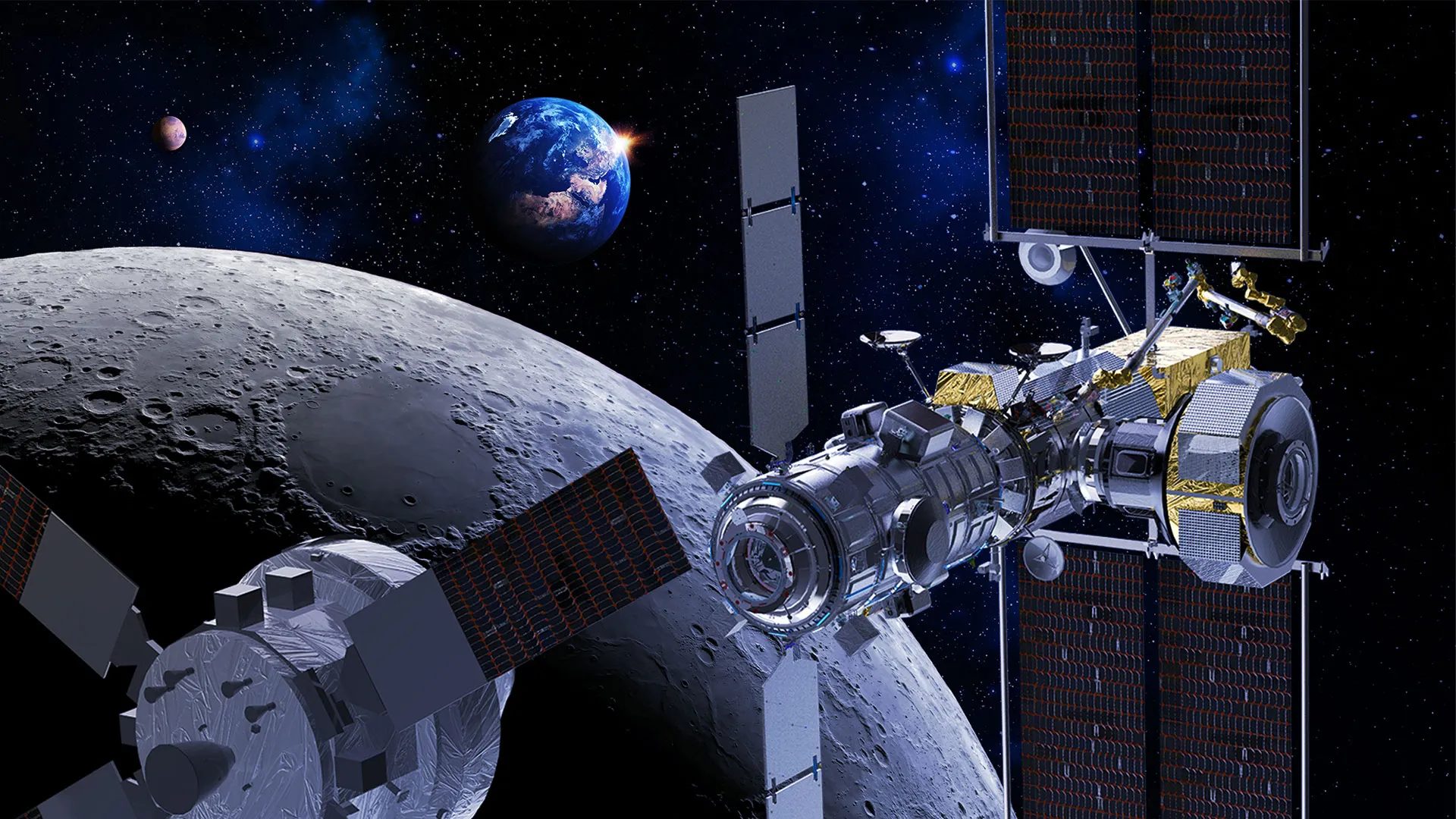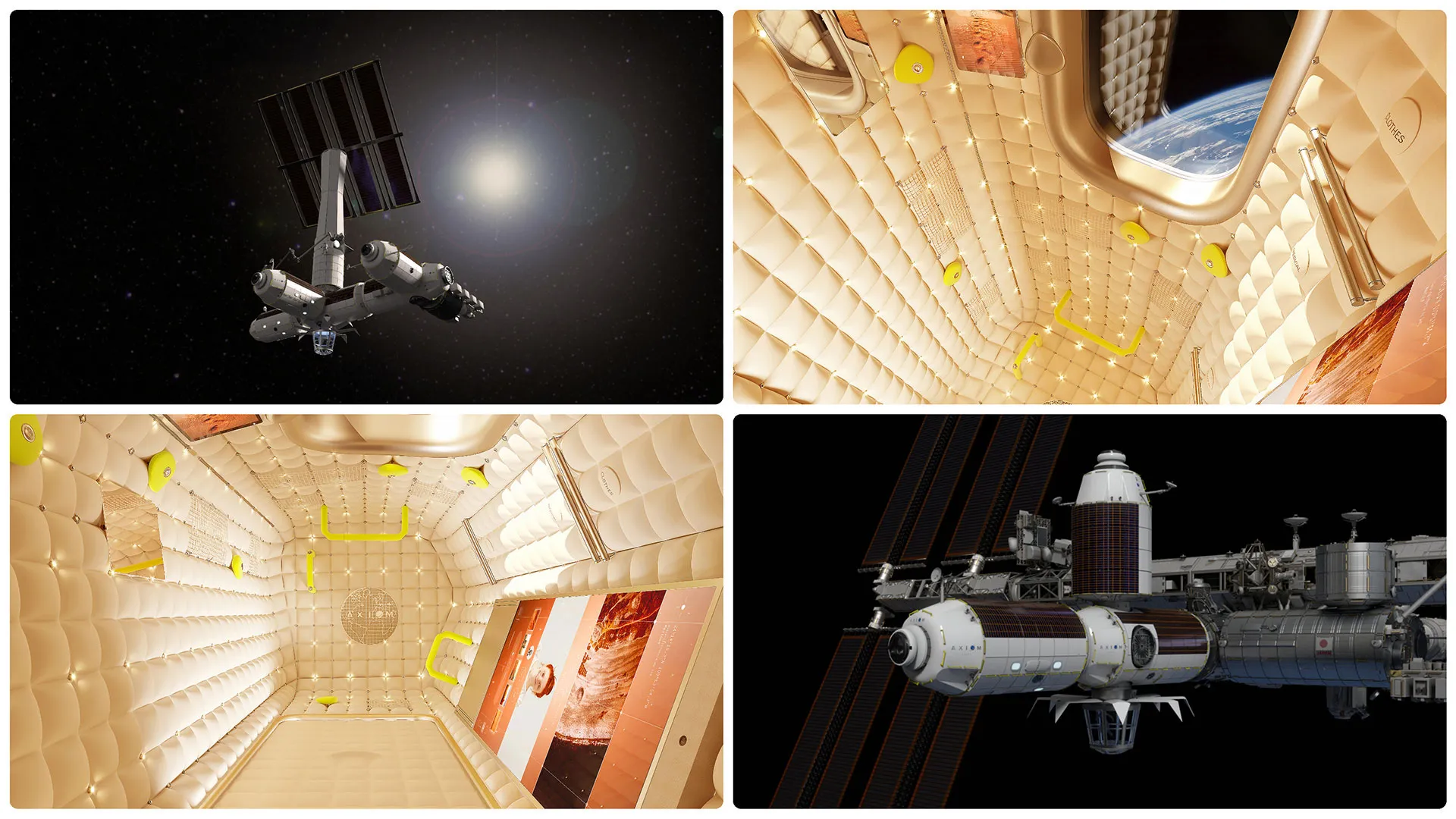Interacting with Startups
When established space companies and SMEs/startups team up!
Interacting with Startups
When established space companies and SMEs/startups team up!

The satellite market has been undergoing deep changes over the last decade. The emergence of new players, including startups, contributed, for some of them, to introduce new technologies and new production approaches. Legacy satellite manufacturers have been made to adopt new strategies so as to remain competitive at international scale.
There are more and more synergies existing between established manufacturers and startups, capable of offering disruptive solutions that could displace existing models.
This context leads to increase the number of linkups. Consequently, the best guarantee of ongoing and effective innovation is for legacy manufacturers to team up with the most promising startups, at all stages of development, not only in the initial phase where innovative ideas take shape, but also on projects that are well under way. Startups could thus take advantage of the technical and human expertise offered by a major corporation, which in turn supports the startup in successfully developing its solution, and then integrates it in its development strategy.
New Space at a glance
New Space refers to a space industry born in the United States. Its development is favored by an American legal framework adapted to commercial space activities which considerably increases the accessibility and attractiveness of space. Contrary to what it suggests, the expression "new space" does not designate a revival but an opening up of space to new players and an extension of the field of application of space technologies.
In fact, it translates into the privatization of access to space and the arrival in the space economy of players from Silicon Valley and the GAFAM (Google, Alphabet, Facebook, Amazon, Microsoft). These new entrants in a sector of activity that was previously reserved for States and public institutions are bringing innovations and technologies from other sectors such as digital, Big Data or aeronautics to the traditional space sector.
As mentioned before, there are lots of synergies between old and new space. New Space should be seen as a new state of mind and a new industrial dynamic where the entire space ecosystem needs to be involved. It therefore should be seen as a win-win approach that requires ever more innovation while benefiting from technology transfers from non-space industries. Risk-taking is part of it.
This affects all components of the chain: there is a trend towards miniaturization of products, digitalization, simplification of processes, use of low-cost components, implementation of new production methods, establishment of partnerships between large groups and SMEs/start-ups, and taking advantage of new sources of funding (not only public but also private).
Embracing the New Space era
Our company leveraged its expertise in constellations, navigation, Earth observation and even orbital infrastructures to address various New Space markets linked to the Internet of Things, space situational awareness or high revisit optical Earth Observation. All these new topics emerged during second half of the 2010s.
Recent New Space success stories
A few years ago, Thales Alenia Space teamed up with US-based BlackSky company to create LeoStella, an equally-owned joint venture at the heart of the New Space environment. Its objective was to build BlackSky, the first constellation featuring short revisit times, with 60 high-resolution optical observation satellites. Leostella was created in Seattle in order to integrate BlackSky satellites but also to address additional US market opportunities. We will deliver satellite platforms dedicated to Loftorbital, a startup whose goal is to facilitate data collection from the sky.
From ANGELS, Kinéis and Omnispace
In the field of satellite navigation, a lot of things have happened for our company, that is more and more involved in IoT topics. ANGELS first French nanosatellite celebrated late 2021 its second anniversary in orbit. Featuring a new-generation native geolocation function, it has exceeded initial expectations. This is a French space agency CNES mission, coordinated by Hemeria, which is also responsible for the nanosat platform (a 12U CubeSat). The Argos Neo payload was developed by Thales Alenia Space as prime, working with Syrlinks, a manufacturer of radio communications and geolocation equipment, as lead partner. ANGELS is equipped with ARGOS NEO, a miniaturized instrument tailored for “new space” requirements. This instrument sets the global standard for spaceborne IoT, in particular with native geolocation to support the monitoring and protection of our planet’s environment. Thales Alenia Space and Syrlinks rose to the challenge by miniaturizing the instrument’s components so that this payload would be compatible with the nanosat-sized platform of ANGELS.

Thales Alenia Space is justifiably proud of this instrument, since it heralds a new-generation system comprising 25 French-built nanosatellites for the Internet of Things. Thales Alenia Space plays a lead role in this constellation, which will be operated by Kinéis, a CLS subsidiary. Within the consortium, Thales Alenia Space is system architect, responsible for the ground segment and payload, with Syrlinks as a major partner, while Hemeria is responsible for the platform.The payload itself comprises two instruments, one for IoT and the other for maritime surveillance applications.
Kinéis constellation will cover a broad range of applications: tracking of ships at sea, management of natural resources (detection of fishing zones), helping the “Blue Economy”, ensuring personal safety and security, environmental management, collecting meteorological data and much more.
Thales Alenia Space and Kinéis are taking an approach that matches the needs of the evolving “new space” environment. This approach complements Europe’s vast Copernicus environmental monitoring program, in which Thales Alenia Space is also the lead industrial partner.
Capitalizing on its experience onboard ANGELS and Kinéis, Thales Alenia Space was chosen by Omnispace US-based startup in 2020 in order to build 2 nanosatellites dubbed Omnispace Spark 1 and -2. Weighting 15kg each, these spacecraft are part of Omnispace’s ambitious plan to develop a global constellation that would offer the world’s first hybrid (ground/space) 5G network. They were built built under Thales Alenia Space prime contractorship, hand-in-hand with Nanoavionics, Syrlinks & Anywaves.
New Space and Space exploration

New space also applies to space exploration, and Thales Alenia Space is at the heart of this dynamic as it has become the world leader in pressurized modules dedicated to human space exploration.
The United States is leading a race to “conquer” the Moon and is calling on the expertise of the European space industry. Missions abound, notably in the framework of Artemis program, which aims at a human return to the Moon by 2024.

After providing most of the ISS’ pressurized volume, including the iconic Cupola, a room with a 360° view of the Earth and the station, we are currently building the first 2 modules of the world's first commercial space station, Axiom Space, which will be attached to the ISS initially for commercial operation, then detached to live its own life when the ISS reaches its end of life. This is a totally private initiative for which French designer Philippe Starck has conceived the interiors. The company will also build 3 pressurized modules for Gateway cislunar space station.
Beyond Axiom, we are partners of many studies and initiatives related to the presence of astronauts on the Moon and Mars, some of which are totally private, in particular concerning the design of habitats, rovers or telecommunication systems. We worked with Nanoracks startup for example, or with Space Cargo Unlimited whose mission is dedicated to the delivery of food and biological elements whose properties will be analyzed directly in space.
Investing in innovation
In 2014, Thales Alenia Space launched the Innovation Cluster, an entity combining innovative approaches from both the legacy and New Space environments. Focused on generating value right from the outset, the Innovation Cluster organized its innovation investment strategy both in-house and externally, covering both evolutionary and revolutionary approaches.
In-house, the Innovation Cluster is an incubator for Thales Alenia Space’s innovative projects, based on essential medium-term objectives. It applies the same principle as in startups: kickoff, followed by a ramp-up, leading to a product line, or to continued development with strategic and/or financial partners. It for instance allowed to launch a test-and-learn demo of space edge computing with Microsoft, paving the way for Thales Alenia Space’s strategic positioning on that matter.
Externally, the Innovation Cluster developed an “Open Innovation” approach to foster partnerships with partners outside the company. We identify the startups that are most likely to become suppliers or partners, or with which we would consider strategic links, including cross-shareholding, then monitor and analyze them to eventually apply the appropriate measures. Thales Alenia Space takes a strategic approach, including a human investment based on contributing technical and commercial expertise. Given the dynamic nature of the New Space environment, Thales Alenia Space is seeking all the more to minimize risks by making the right choices. However, this doesn’t stop us from investing in what we have identified as growth markets, as shown by the creation of the LeoStella joint venture. Collaboration can also take the form of support without a capital investment, especially for potential suppliers. That will help startup partners rise up the skills chain, as both parties develop their mutual understanding. This could be the first step in a “derisking” strategy, based on an evaluation of proofs of concept, or the application of a specific process to mature a concept or a product. It could also entail our participation in Thales incubation programs, such as Station F for cybersecurity with Nethone, for example, or Centech for artificial intelligence with Delfox.
Thales Alenia Space also collaborates closely with Exotrail (electrical propulsion and mission software for smallsats), SwissTo12 (3D printing design), Space Cargo (biotech in microgravity), or Aiko (onboard AI) among others.
In short, it is imperative that Thales Alenia Space and the Innovation Cluster stay in constant touch with startups and the innovation ecosystem to identify and select the most pertinent candidates and to foster a productive relationship with internal startups or traditional entities, all with the aim of creating a win-win relationship for all parties involved.
In a nutshell
Today, we are connected with over 700 SMEs/start-ups, and actively engaged with over 150 of them. We have reviewed our manufacturing processes, introduced additive manufacturing, robotics and cobotics in our workshops. Finally, we have made our products more and more digital and have launched the development of small/nanosatellites in partnership with SMEs (Hemeria, Nanoavionics, Anywaves...).
